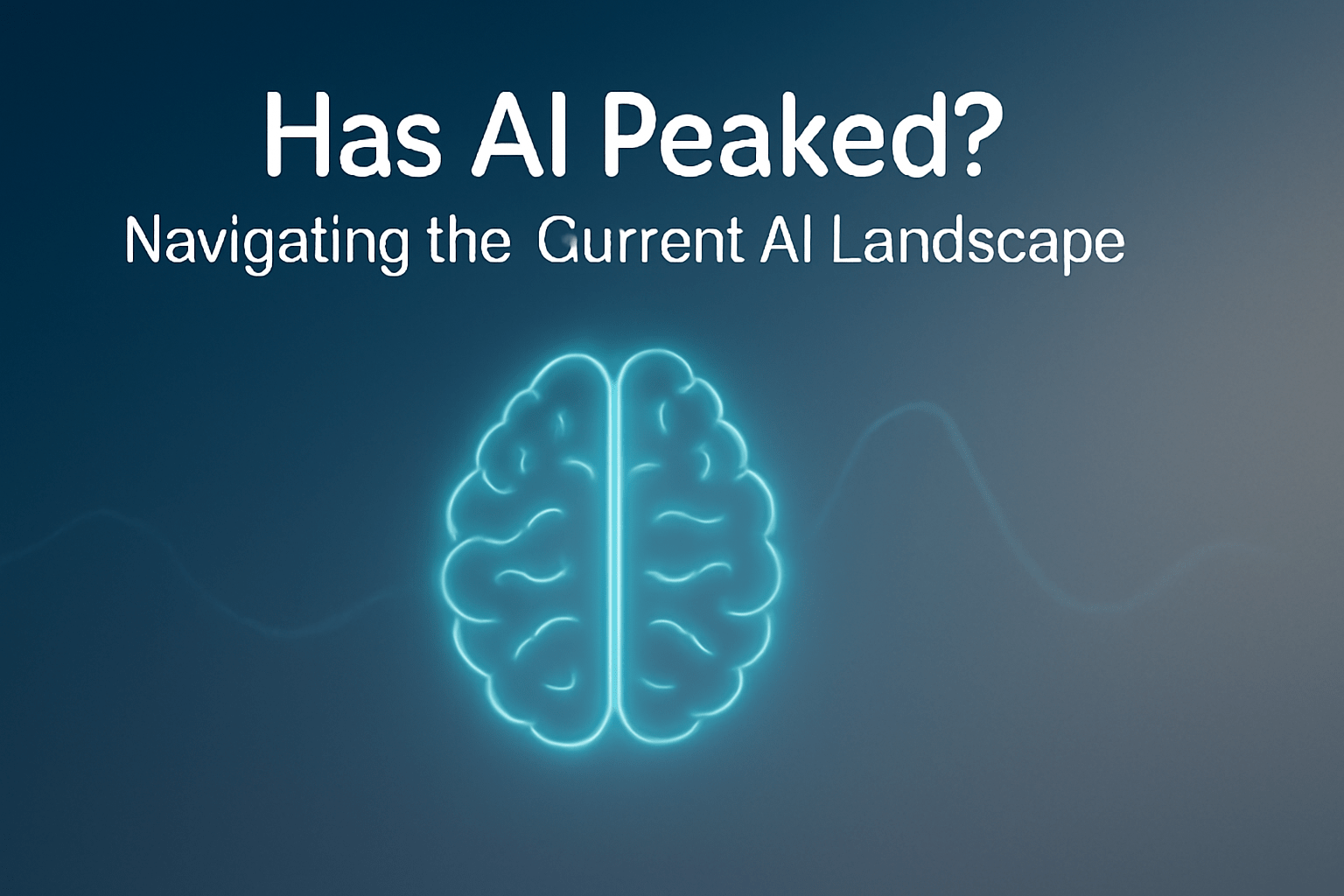Has AI Peaked? Navigating the Current AI Landscape

Artificial Intelligence (AI) has been the talk of the tech world for years, powering everything from spam filters and facial recognition to autocomplete and personalized recommendations. It’s become an integral part of our daily lives, almost to the point where it’s everywhere we turn. But recent research from Washington State University has revealed a surprising trend: AI might be losing its charm. The study suggests that AI could be killing sales, leading some to wonder if we’ve reached the peak of the AI wave.
The Growing Disillusionment with AI
For many, the idea that AI could be on the decline is shocking. After all, AI has been hailed as the future of technology, driving innovation and efficiency across industries. However, there’s a growing sense of fatigue around AI. It seems that the constant barrage of AI-related news, updates, and features is starting to wear people down. Even Wall Street, which once embraced AI with open arms, is beginning to question whether we’re in the midst of an AI bubble.
The concept of an AI bubble isn’t new. The Gartner Hype Cycle, a well-known model that tracks the adoption of new technologies, suggests that every new technology goes through a phase of intense hype followed by a crash. It’s possible that AI, as a whole, is currently somewhere between the peak of inflated expectations and the trough of disillusionment.
The Market is Flooded with AI
In recent weeks alone, we’ve seen the launch of several new AI models, including GPT-4o, Llama 3.1, Gemini 1.5 Pro, and Mistral Large 2. It’s a whirlwind of activity that can make it hard for even the most tech-savvy individuals to keep up. The rapid pace of AI development, combined with the sheer volume of new models and tools, has led to a saturation of the market. Consumers are beginning to push back, expressing frustration with the constant push of AI into every aspect of their lives.
The Case of The Browser Company and AI Overload
The Browser Company, known for its Arc browser, is a prime example of how AI overload can backfire. Despite being a fast-growing company with a talented team, their heavy focus on AI has left some users unimpressed. Many of the AI features in the Arc browser, while technically impressive, haven’t resonated with users. This disconnect highlights a key issue: consumers don’t necessarily want more AI—they want AI that adds real value.
The Need for Intelligent AI Integration
The lesson here is clear: AI should be used intelligently, not just for the sake of it. Apple’s recent WWDC event showcased a smart approach to AI integration. Instead of forcing AI into every product, Apple introduced features that subtly enhance the user experience, such as improved photo search and a new calculator app that seamlessly solves equations. These features show that AI can be powerful without being overwhelming.
Looking Ahead: The Future of AI
So, has AI peaked? It’s possible that we’re seeing the end of the initial AI boom, but that doesn’t mean AI is done. Just like the Dot Com bubble, where many companies failed but a few became tech giants, the AI industry is likely to undergo a similar transformation. Companies that can pivot and offer meaningful, AI-driven solutions will survive and thrive, while those that rely solely on AI hype may struggle.
The future of AI will likely be less about making the most powerful AI and more about integrating AI in ways that genuinely improve products and services. AI isn’t going away, but the way it’s used will evolve. Companies will need to focus on creating AI that enhances the user experience in a way that feels natural and unobtrusive.
Conclusion
AI has brought us incredible advancements, but it’s also facing a period of scrutiny and skepticism. The days of AI being a selling point in and of itself may be numbered. Instead, the focus will shift to how AI can be used to solve real problems and deliver tangible benefits. As we move forward, the companies that succeed will be those that understand this and adapt to a new era of intelligent, thoughtful AI integration.
